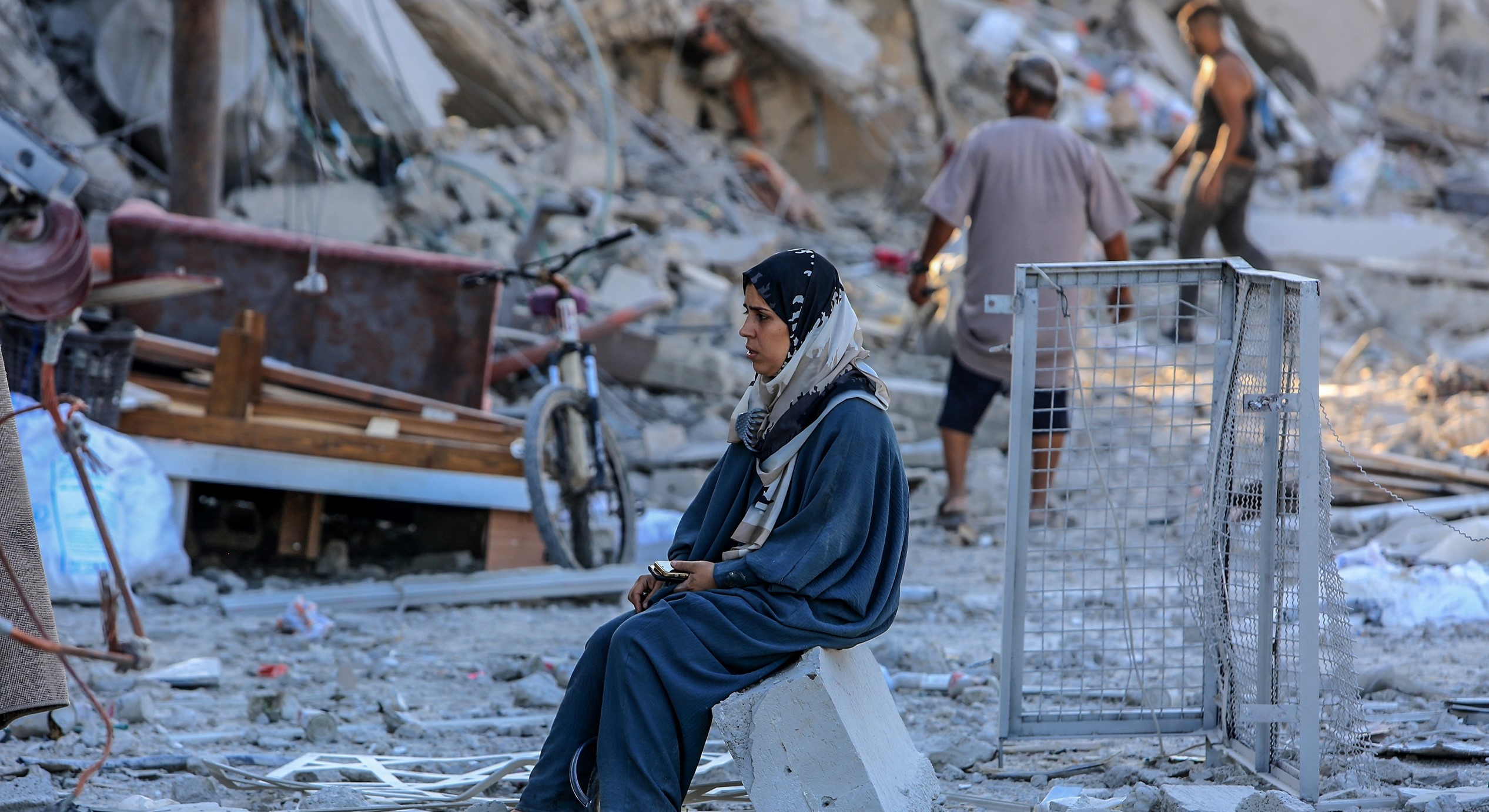
Women in Wars: Challenges and Social Change
In the past decades, the Arab region has witnessed many wars and conflicts. Their adverse effects continue to deepen in society and are reflected in all its components. Women are the most affected group, as they suffer from violence, discrimination, and poverty. In light of the wars currently raging in the Arab region and the killing and destruction that has continued unabated over the course of a year on the residents of Gaza, Lebanon, Sudan, Yemen, and Syria, the Arab NGO Network for Development (ANND) dedicates the November newsletter to a feminist reading of the ongoing conflicts and wars. This newsletter aims to provide a feminist-political reading of the situation in the region, shedding light on the repercussions of conflicts on women and girls. A UNFPA report shows that more than 30% of women in conflict zones face forms of sexual violence, highlighting the extent of the suffering that women experience in these harsh conditions (UNFPA, 2022). According to an Amnesty International report, women and girls are used as a tool of war in armed conflicts, leading to an increase in cases of rape and assault (Amnesty International, 2023).
A UNFPA report shows that more than 30% of women in conflict zones face forms of sexual violence, highlighting the extent of the suffering that women experience in these harsh conditions (UNFPA, 2022). According to an Amnesty International report, women and girls are used as a tool of war in armed conflicts, leading to an increase in cases of rape and assault (Amnesty International, 2023).
In Syria, for example, several NGOs have documented cases of systematic sexual assault against women in areas under military control. Rape practices in the Sudanese war also stand out as one of the phenomena that threaten the tribal cultural system, as women’s honor is violated in the context of crises, which requires thinking about how cultural systems will be affected after the end of wars.
In addition, many women are displaced as a result of conflicts. Reports indicate that about 13.5 million Syrian women have been internally displaced or migrated to other countries due to the war (UNHCR, 2023). In Gaza and Lebanon, women face similar challenges, forced to live under the pressure of ongoing humanitarian crises.
Conflicts have a significant impact on the economy, increasing women’s suffering. Many women have lost their jobs or sources of income, forcing them to live below the poverty line. According to a World Bank report, conflicts in the Arab region have led to an increase in unemployment rates among women to 25% compared to men (World Bank, 2022). In Yemen, statistics show that more than 80% of women do not have a stable source of income due to the war, making them more vulnerable to exploitation and abuse (Oxfam, 2023).
Conflicts lead to the deterioration of health services, leaving women vulnerable. Reproductive health care is one of the most affected areas. According to the World Health Organization, 50% of women in conflict areas do not receive the necessary health care during pregnancy and childbirth (WHO, 2023). In Yemen, 2.2 million women suffer from pregnancy complications due to the lack of access to health care (UNFPA, 2023).
Education is also under significant threat. UNICEF reports that 7.5 million girls in the Arab region have been deprived of education due to armed conflict (UNICEF, 2022). In Iraq, after the war, the percentage of girls in education has dropped to only 30%, increasing illiteracy rates and hindering their future opportunities.
The Impact of Artificial Intelligence
Contemporary wars, including the current Gaza and Lebanon wars, are witnessing an increasing use of modern technologies, including artificial intelligence, which significantly affects the situation of women in conflict zones. AI systems are used to identify military targets and carry out attacks, increasing the accuracy of attacks and exposing women and children to greater risk. With technologies such as drones, data based on algorithms is used to identify targets, which can lead to serious human rights violations. Women, as part of the affected community, are deprived of the necessary protection and are the most vulnerable to violence and exploitation.
The Role of Women in Conflict
Despite the challenges, women play essential roles in war-affected communities. Stories of women leading peace and reconstruction initiatives are increasing. In Syria, women organize awareness-raising and support programs for displaced persons, reflecting their strong will and resilience in the face of challenges. These initiatives demonstrate how women can be a force for change, as the United Nations Development Program emphasizes that involving women in peace processes can increase the effectiveness of proposed solutions (UNDP, 2022).
Recent publications

